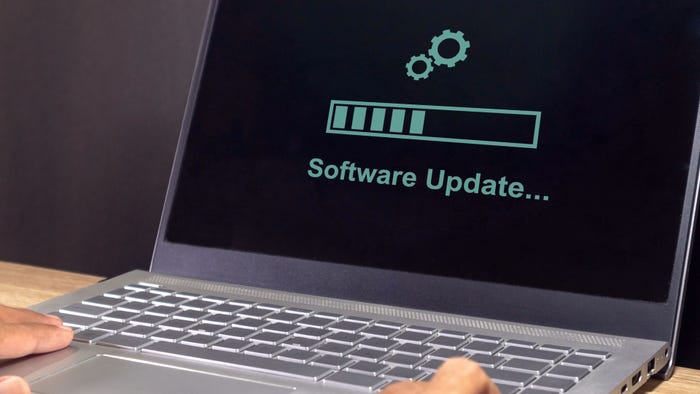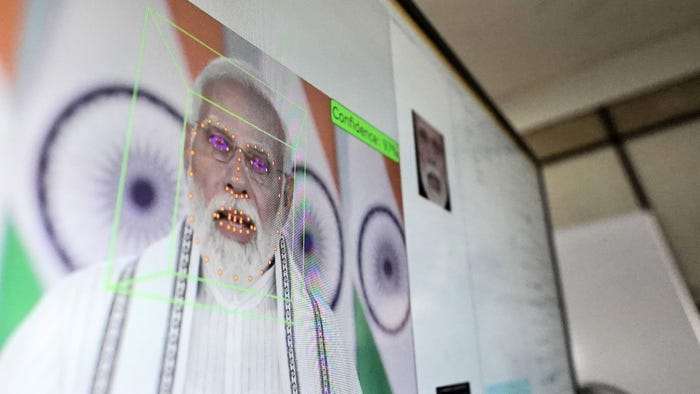Senate Bill Seeks Greater NSA Surveillance Oversight
Proposed legislation would require greater monitoring and privacy controls for NSA surveillance programs designed to gather foreign intelligence.

Legislation introduced Monday seeks to rein in what some senators see as overly broad interpretations of the Patriot Act and the Foreign Intelligence Surveillance Act (FISA) by the National Security Agency (NSA).
The proposed FISA Accountability and Privacy Protection Act of 2013 was introduced by Sen. Patrick Leahy (D-Vt.), chairman of the powerful Senate Judiciary Committee, together with a bipartisan group of senators, including Richard Blumenthal (D-Conn.), Mike Lee (R-Utah), Jon Tester (D-Mont.), Mark Udall (D-Colo.), and Ron Wyden (D-Ore.).
National intelligence director James Clapper has said that the NSA's bulk collection of phone records has been authorized by section 215 of the Patriot Act, while section 702 of FISA has been used to authorize Prism, which involves the mass collection of phone and Internet communications, among other programs.
[ With charges formally filed against him, Edward Snowden is reportedly trying to gain asylum in Ecuador, but currently his whereabouts are unknown. Read NSA Leaker Snowden On The Run. ]
"The recent public revelations about two classified data collection programs have brought renewed attention to the government's broad surveillance authorities, and they underscore the need for close scrutiny by Congress," Leahy said in a statement. Accordingly, he said, his legislation would "narrow the scope of Section 215 orders by requiring the government to show both relevance to an authorized investigation and a link to a foreign group or power." Currently authorities must demonstrate only that a requested intercept relates to an authorized investigation.
Leahy's proposed legislation would also require that national security letters (NSLs) -- which are secret demands for information issued to an individual or organization -- would expire after a preset period of time. Currently, NSLs cannot be challenged in court until one year after they are received, but Leahy's legislation would allow recipients to challenge them immediately.
Details of the NSA's top-secret surveillance programs, as well as the secret court orders authorizing those programs, were leaked earlier this month by former CIA employee and NSA contractor Edward Snowden.
Intelligence officials continue to maintain that the surveillance programs operate within the law. "I'm confident that we're following the laws that our country has in doing what we do. We have a set of laws that guide how NSA acts; we follow those laws. We have tremendous oversight by all three portions of the government: the courts, Congress and the administration," Gen. Keith Alexander, director of the NSA, told ABC News Sunday. "Now when you look at these laws and the way they've been passed and the oversight mechanisms that we have, I am confident that we are following our laws."
But multiple lawmakers, including Rep. James Sensenbrenner (R-Wis.), who authored the Patriot Act, have criticized the breadth of the surveillance programs. "I am extremely disturbed by what appears to be an overbroad interpretation of the Act," Sensenbrenner wrote in letter to Attorney General Eric Holder earlier this month.
Do the programs provide an effective intelligence and law enforcement tool without undermining people's privacy rights? Detailed answers to that question remain largely classified. But according to senators Wyden and Udall, one recent related public statement made by Alexander -- who's claimed that intelligence gathered via the programs has helped foil 50 terror threats -- has been inaccurate.
The senators wrote to Alexander Monday, requesting corrections to a recently released NSA fact sheet on some of its surveillance activities. "In our judgment this inaccuracy is significant, as it portrays protections for Americans' privacy being significantly stronger than they actually are," they wrote.
But they couldn't publicly detail the inaccuracy, because the information they referenced is classified. Instead, they detailed their criticism in an attached confidential letter.
The senators also characterized the fact sheet as "misleading," stating that "inadvertently acquired communication of or concerning a U.S. person must be promptly destroyed" unless it's relevant to an active investigation. That's because the senators said that multiple intelligence officials have repeatedly stated that it was impossible to know how many U.S. residents' communications were reviewed by FISA-authorized programs.
About the Author
You May Also Like



_Daniren_Alamy.jpg?width=700&auto=webp&quality=80&disable=upscale)
